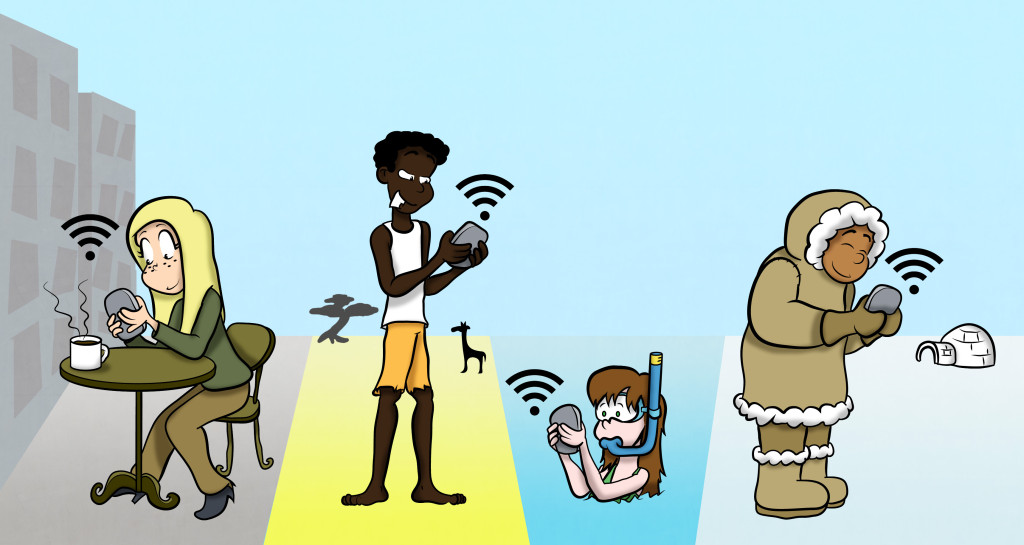New York-based charity says satellite capability could be ready by late-2015
By Patrick Vaillancourt, News Editor
A New York-based charitable organization is looking to the stars with plans to provide real-time access to news and information to even the least-connected parts of the world.
The Media Development Investment Fund (MDIF), the nonprofit organization spearheading the initiative known as Outernet, has reached out to a team of telecom specialists and engineers to make the plan a reality.
The plan is to launch approximately 150 micro-satellites into Low Earth orbit, which will broadcast some of the more popular information providers found on the Internet. The plan allows for a one-way broadcast of data to an Earth-bound mobile device.
The plan would allow for news and information to be broadcast to users from all over the world, and because the signal originates from space, it would operate independently of national censorship rules in countries such as China, Russia, and North Korea. Outernet’s website states the goal of broadcasting “digital content to mobile devices, simple antennae, and existing satellite dishes.”
Technology experts say that the current problem is a lack of ground-based infrastructure that is required in order for Wi-Fi-enabled devices to access a network. One would have to look no further than remote parts of Northern Canada, where cellular towers offer inconsistent Wi-Fi access to residents.
Outernet would provide access to Wikipedia, news sources, emergency communications, and online teaching resources such as those published by Teachers Without Borders. The Outernet could theoretically act as a real-time source of information in situations of crisis, such as natural disasters and terrorist attacks, when cellular networks may not be operational.
The project is currently seeking additional funding from the public.
Some have been skeptical of Outernet, saying that the major telecom companies worldwide will fight the plans for space-based broadcasting of information readily available on the Internet. In a question and answer session on Reddit, the founder and project leader, Syed Karim, said that it is prepared for the looming public debate with the telecoms.
“We will fight,” said Karim. “And we will win.”
The project’s timeline is an ambitious one, and will require the cooperation of strategic partners from the testing phase through to complete capability. For example, the project’s website states that their timeline includes possible testing of the micro-satellites in a space-like environment, such as on the International Space Station (ISS), by September 2014. It is unclear whether the project has already sent a request to NASA regarding testing on the ISS, but the NASA security assessments alone could take years to approve.
Despite the criticism, the project leaders remain optimistic and stand by their stated timeline. Assuming the project goes ahead according to its schedule, launch of the first series of satellites could begin by June 2015.



